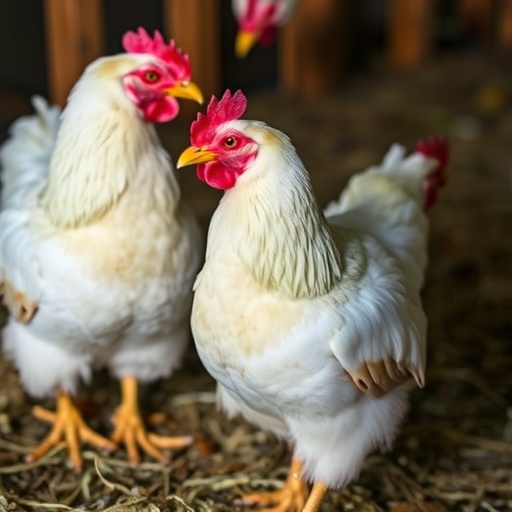In the realm of poultry science, recent research findings have emerged, highlighting the pivotal role of L-serine, an amino acid, in alleviating physiological stress responses in broiler chickens. As the industry faces the dual challenges of feed restriction and heat stress, which can significantly affect the health and productivity of these birds, this new study sheds light on potential strategies to enhance their resilience. Understanding the biochemical pathways influenced by L-serine could mark a turning point in broiler management practices, ultimately leading to improved bird welfare and productivity.
The integration of L-serine into the diets of broiler chickens has been shown to influence various metabolic processes. This study, conducted by a team of researchers led by Ogbuagu, delves into the ramifications of L-serine supplementation under two stressful conditions: feed restriction and elevated ambient temperatures. The authors meticulously designed experiments to evaluate how oral administration of L-serine could modulate oxidative stress responses, which are often exacerbated by environmental and nutritional stressors in poultry.
At the heart of this research lies the concept that feed restriction, while commonly employed to manage growth rates and feed conversion efficiencies, can inadvertently create an environment of oxidative stress. This oxidative stress is characterized by an excess of free radicals that can damage cellular components, leading to detrimental health effects in broilers. The application of L-serine is postulated to ameliorate these harmful effects, supporting the birds’ physiological balance during periods of nutritional deficit and thermal stress.
Another significant dimension of this study involves heat stress, a frequent concern in poultry production, particularly in hotter climates. The adverse effects of elevated temperatures on broilers can result in decreased feed intake, impaired weight gain, and compromised immune function. The introduction of L-serine into the dietary regimen is being correlated with enhancements in the ability of broilers to cope with these temperature extremes, thereby supporting growth metrics and overall health.
Moreover, the researchers present a thorough analysis of the oxidative markers within the avian subjects, providing compelling evidence that L-serine supplementation reduced the levels of these markers compared to control groups. This finding underscores the amino acid




